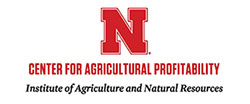Agricultural Economics, Department of

Center for Agricultural Profitability
Estate Planning: Stepped-Up Tax Basis
Date of this Version
8-1-2024
Document Type
Article
Citation
Meyer, A. “Estate Planning: Stepped-Up Tax Basis.” CAP Series 24-0801, Center for Agricultural Profitability, University of Nebraska-Lincoln, Aug. 1, 2024. DOI: 10.32873/unl.dc.cap043.
Abstract
A key consideration in estate planning is the transfer of assets to the next generation as 98% of farms are family owned and operated. Additionally, active operators or retired farmers own 75% of U.S. farmland (AgAmerica, 2023). As the average age of an operator increases, there is going to be a large transfer of farmland and other assets in the future whether by gifting, selling, or passing the farm to the next generation through inheritance.
Stepped-up basis is a tax provision that allows the value of an inherited asset to be adjusted to its fair market value at the time of the original owner's death. This adjustment increases the asset's basis, which is the value used to determine capital gains or losses when the asset is eventually sold by the heir. By stepping up the basis to the asset's current market value, any appreciation that occurred during the original owner's lifetime is not subject to capital gains tax, potentially reducing the tax liability significantly for the heir upon the sale of the asset. Although long-term capital gains are taxed at a lower rate relative to other types of income, the rapid appreciation of agricultural assets over someone’s lifetime make them a concern for people looking to sell assets in retirement or people inheriting farm or ranch assets.

